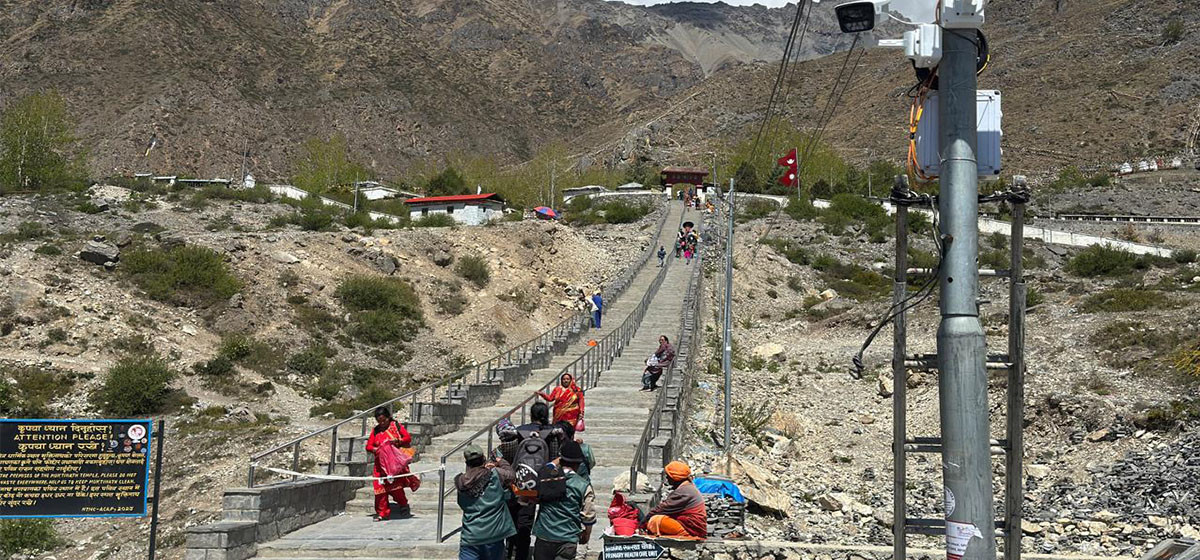KATHMANDU, March 23: A report published by the World Food Programme (WFP) has shown that improving roads and trails in mountainous regions of Nepal can improve food security and nutrition for the rural communities of remote areas.
The report "Road and Market Access and Household Food Security" was unveiled by WFP on Friday. WFP had conducted a research recently in collaboration with national and international experts in order to raise awareness on the impacts of improved road and trail infrastructures on household food security.
Improving mountain trails can unlock rural livelihood opportuni...

The study found that improved infrastructures such as rural roads, trails and bridges can help create livelihood opportunities and improve food security for remote mountainous communities. Moreover, the study found that in areas where people were able to access markets more quickly and easily, households spent more money on non-staple foods, and had more diverse and nutritious diets, reducing the likelihood of stunting among children. Through improved roads and trails, communities increased their ability to transport goods and gained easier access to social services and markets, according to the research.
"Most mountain communities across Nepal cannot grow enough to meet their household needs of more than a few months. Meanwhile, food carried by people and mules up the mountain trails costs three times more than its original price in the tarai. So it is not surprising why up to 60 percent of children in mountain communities do not get enough nutritious foods to eat and will have to live with life-long effects of stunting and under-nutrition at an early age," said Pippa Bradford, WFP's country director for Nepal.
WFP has been working with various donor organizations to increase accessibility to remote areas by improving roads and trails in several districts, especially in rural and hard-to-reach regions of the country.




































